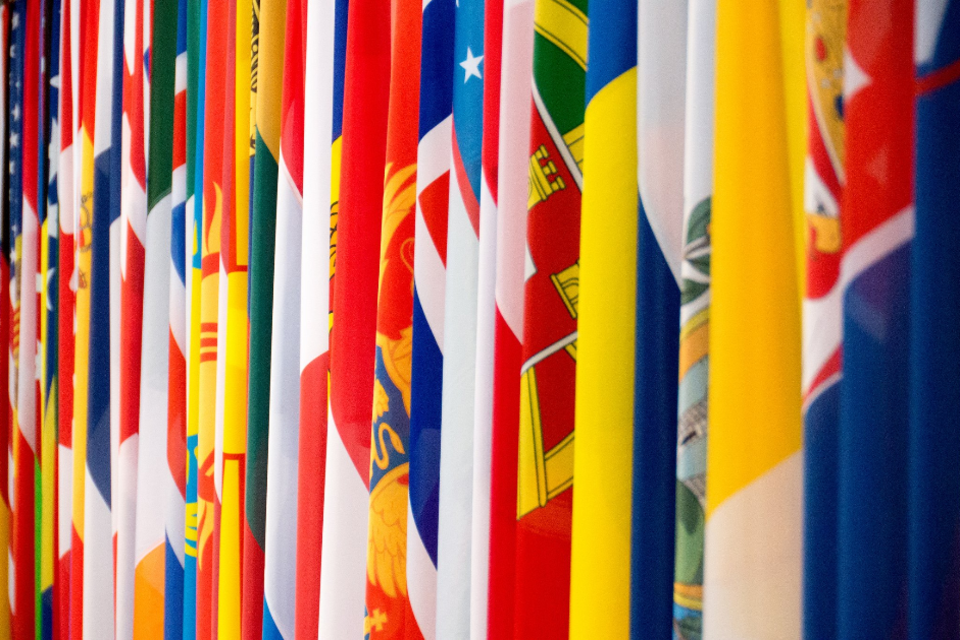Russia's war in Ukraine: UK statement on OSCE's second Moscow Mechanism expert report
Deputy Ambassador Brown welcomes the publication of the second independent OSCE report, and highlights two new alarming phenomena in Russia's war.

Thank you very much Mr Chair,
I wish to make a statement in my national capacity, to supplement the statement just delivered by Ambassador Gjermeni from Albania on behalf of the 45 States which, with the support of Ukraine, invoked the Moscow Mechanism for a second time.
I would like to welcome back Professor Veronika Bilkova, and welcome Professors Laura Guercio and Vasilka Sancin to the Permanent Council today. Thank you. We greatly appreciate that we have, collectively, been able to call on your expertise, and independence, in preparing this extensive and important report.
Mr Chair,
The United Kingdom strongly supported the invocation of both the first and second Moscow Mechanism on Ukraine due to our grave and ongoing concern about the humanitarian impacts of Russia’s invasion of Ukraine; and the potential for the commission of war crimes and crimes against humanity. As with the first report, the second has demonstrated that we are right to remain concerned and that we must remain vigilant in our support for human rights, international humanitarian law and for impartial fact finding during the conflict.
The report is a real life horror story. Due to the actions of the Russian government – a government of an OSCE participating State – this horror is an everyday reality for the people across Ukraine.
Reports of torture. The execution of civilians. Unlawful detention. Enforced disappearances. Targeting civilians on their streets, in their cars, on their bicycles, on their balconies and in their homes. Victim activated booby traps. The rape of women. The rape of children. Violence towards men. The killing of journalists. Targeting of hospitals, of schools. The use of cluster munitions. Shallow graves. The threat of cholera. This is an affront to humanity. It is depravity itself.
I recall with shock, alarm and dismay some of the accounts documented from Bucha in this report. I simply cannot imagine what it is like to have lived through the reality on the ground.
In Vorzel, west of Bucha, where a woman and her 14-year-old child were killed after smoke grenades were thrown into the basement in which they were hiding.
The summer camp in Bucha, repurposed for torture. With bullet holes in the walls, instruments of torture and the corpses of five dead men - burned, bruised, and lacerated.
In Zabuchchya, a village in Bucha district, where 18 bodies of murdered men, women and children were discovered. Some with their ears cut off, some with their teeth pulled out.
Kyiv’s regional police force have reported that 900 civilian bodies were discovered after the Russian withdrawal, 350 of them in Bucha. According to police reports, nearly 95% were “simply executed.”
It comes as no surprise that after visiting, the International Criminal Court (ICC) prosecutor referred to Bucha as a “crime scene.”
The value of the second report is demonstrated in its identification of two new and extremely concerning phenomena:
Firstly, the report documents the Russian government’s sickening use of ‘filtration centres.’ Centres where Ukrainian civilians undergo harsh interrogations, humiliating body searches and are often transferred, with or without their consent, to Russian territory or to the so-called “People’s Republics.”
Secondly, the report documents the Russian government’s attempt to bypass international obligations through the use of so-called “People’s Republics.” Mr Chair, in so doing, the report rightly raises serious concerns about the treatment of Prisoners of War by Russia and Russia’s proxies and references the trials and sentencing of Shaun Pinner and Aiden Aslin. As both this report and the Office of the UNHCR confirm - Mr Pinner and Mr Aslin are members of the Ukrainian Armed Forces and should be treated as Prisoners of War. They are not mercenaries.
The report makes clear that, despite Russia’s best efforts to portray them as independent, the so-called “People’s Republics”, are controlled by Russia. As such, the UK calls on Russia to take note of these findings, treat Prisoners of War and civilian detainees in accordance with International Humanitarian Law and end the use the “People’s Republics” to conduct sham trials and issue capital charges for propaganda purposes. We are fully supportive of the efforts of the Ukrainian Government to secure the release of British Nationals held by Russian proxies in eastern Ukraine.
Mr Chair, today we may hear from the Russian Delegation. Sadly, I am sure they will have been instructed to tell more lies and defend the indefensible.
Allow me to take this opportunity to assure them that the United Kingdom remains resolute in our support for Ukraine’s sovereignty and territorial integrity within its international recognised borders. We remain firm in our support for accountability measures at the national and international level. Be assured that we are watching, we are documenting, and we will work tirelessly to ensure that those who are responsible will be held accountable for their actions.
Thank you, Mr Chair.